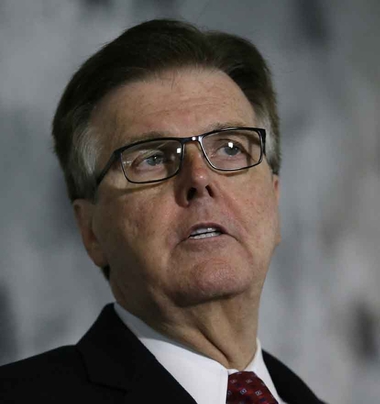In Texas, debate over schools, bathrooms may trump guns, pot

Austin, Texas (AP) — Austin and Washington should be far more simpatico under soon-to-be Republican President Donald Trump than the White House's current occupant, but there's still room for potential policy clashes when Texas' GOP-controlled Legislature heads back to work.
Immigration, schools, no-longer-so-flush state coffers and fights over which bathrooms transgender Texans can use will likely drive debate, while guns and marijuana policy may take a backseat. The wild card: abortion policy, due to the U.S. Supreme Court ruling against Texas' 2013 restrictions.
Here are key issues to watch — and what might get overshadowed — when lawmakers begin their 140-day session on Jan. 10:
Transgender Bathrooms
Texas already led a multistate lawsuit that has temporarily blocked President Barack Obama's directive allowing transgender students to use the public school bathrooms of their choice. Now, Patrick and other top Republicans are backing proposals banning transgender people from doing the same in all Texas bathrooms — mimicking a law that North Carolina passed last year to national outcry, boycotts and the loss of lucrative sporting events.
Democrats and business leaders are opposed, as is Republican House Speaker Joe Straus, who says the issue isn't urgent and worries about North Carolina-like backlash.
___
Education
There are bipartisan calls to spend more on K-12 classrooms but lawmakers won't be compelled to do so because the Texas Supreme Court declared the school finance system constitutional in May, ending a lengthy legal fight.
Lt. Gov. Dan Patrick, a tea party favorite who heads the Texas Senate, is again championing school vouchers, which give families public money to pay for private and religious schools. He could have a powerful ally in Betsy DeVos, a "school choice" advocate tapped to be Trump's education secretary.
But for years, the issue's been stymied in the Texas House by Democrats and by rural Republicans wary of hurting public schools that are the lifeblood of their small districts.
___
Immigration
The Department of Public Safety wants more than $1 billion to help secure the Texas-Mexico border, but Trump's promises to build a towering wall and impose an immigration crackdown could spare the state from spending so much.
Trump's victory also may spur approval of two contentious immigration initiatives that stalled in previous sessions: A would-be ban on "sanctuary cities" requiring police officers to enforce federal immigration laws and the repeal of a 2001 law offering cheaper in-state tuition at public universities to some high school graduates who came to the U.S. illegally.
___
State Budget
Oil prices staying so low for so long have cooled the Texas economy. Lawmakers finished their last session in 2015 with about $4 billion in projected budget surpluses, but much of that may evaporate because projected state tax revenues declined. Oil and natural gas now accounts for about 8.5 percent of Texas' overall economic output, according to the comptroller's office.
There's still $10-plus billion in the rainy day fund — money top Republicans have vowed to mostly preserve. Yet, doing so will make it tougher to cover rising Medicaid expenses and pay for costly fixes to a troubled foster care system while also delivering on GOP promises to expand property tax cuts that have already lost the state billions.
___
Foster Care
A federal judge is overseeing the foster care system overhaul, needed because hundreds of at-risk children are going unseen by caseworkers due to understaffing at the Child Protective Services agency so acute that some youngsters have slept in state offices.
Gov. Greg Abbott is clamoring for faster improvements, but they won't come cheap. Lawmakers have already approved nearly $150 million in special emergency funding — and that's just the start.
___
Abortion
Lawmakers may strike back after the U.S. Supreme Court dismantled key portions of the state's 2013 abortion restrictions.
One untouched policy was a ban on abortion after 20 weeks of pregnancy; legislators could try to move that ban up by a few weeks. Some Republicans also want to prohibit abortion in the case of severe fetal abnormalities, meaning the procedure could be available in Texas only if the mother's health is threatened.
___
Guns
"The Year of the Gun" during the 2015 session allowed license holders to carry handguns in plain sight and bring them onto college campuses. Now, conservatives could tweak those laws to ensure there are fewer zones where authorities have kept gun bans, such as zoos and some public buildings.
But firearm policy may otherwise take a backseat since there appears little appetite for "constitutional carry," or letting non-license holders — virtually anyone in Texas — openly carry guns.
___
Marijuana
Relaxed marijuana laws for legal and medicinal use have even come to more conservative states like Arkansas, but don't count on Texas to follow suit. After the Legislature took the baby step of legalizing cannabis oil to treat epilepsy in 2015, Abbott declared that the state would go no further, likely dooming bills for broader legalization.
By Will Weissert, Associated Press. Copyright 2016 The Associated Press. All rights reserved. This material may not be published, broadcast, rewritten or redistributed.
The Gayly – December 4, 2016 @ 11:45 a.m.





